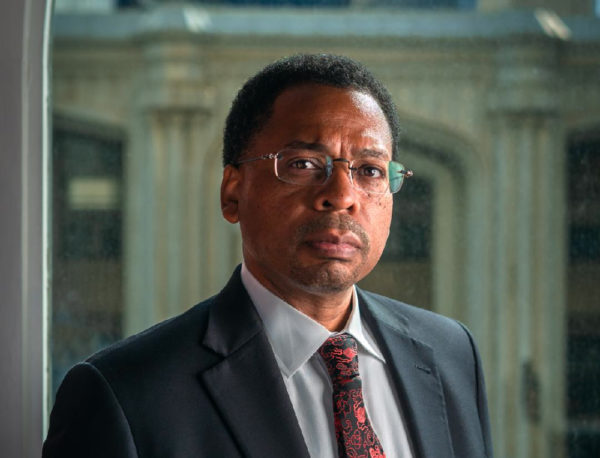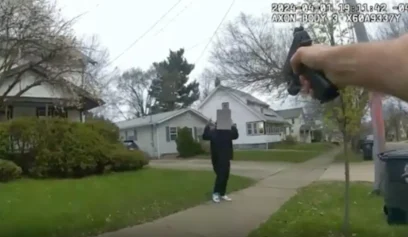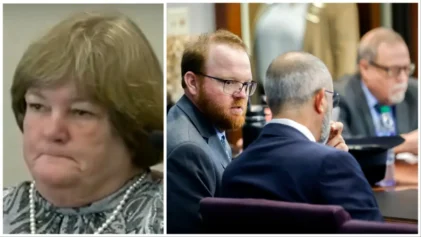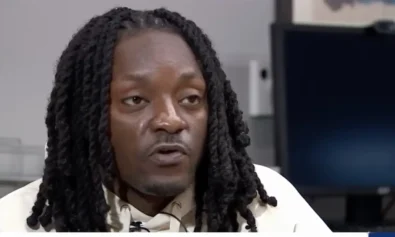After decades of over-sentencing Black people on marijuana charges in the so-called “War on Drugs,” cannabis or CBD oil is now legal in much of the country — yet access to it for Black entrepreneurs is limited.
Civil rights attorney Mario Williams has noticed and does not like what he sees. He has battled for the disenfranchised for more than 20 years, his work centering on police brutality, prisoner rights, wrongful incarceration and discrimination cases. Now, however, the matter of the criminalization and legalization of marijuana and how it impacts Black people has ascended to Williams’ list of concerns and focus.

For Williams, this paradox represents social justice issues that have kept him up at night like many of his civil rights cases.
“It’s an atrocity,” said Williams, whose office is in Atlanta. “Black people have had their lives and communities devastated by laws and judges handing down exorbitant prison time for a product that white officials have always known did not merit those many years people were sent away.”
The legalization of marijuana is about money, money Black entrepreneurs would love to access but are consistently blocked out of the opportunity to do so. In the book, “Marijuana Business 2021: The Legal Cannabis Industry in the U.S. and Globally,” it says: “In just 20 years, what was previously a black-market product has become the cash crop of a new industry.”
Thirty-five states have legalized marijuana use for medicinal purposes, with 15 of those also allowing for recreational use. In 2019, legal marijuana sales reached $13.6 billion, according to New Frontier Data. By 2027, Grand View Research Inc. projects sales to be $73.6 billion.
“And yet, now that they have made it legal, understanding the vast medical benefits to cannabis, they legalize it, but make it virtually impossible for the people they criminalized to be a part of the legal business side of it. An atrocity,” Williams said.
Williams, 48, has won cases against the police for use of force and handsome settlements for clients. To win in the cannabis area, he partnered with his brother and a friend to create 9 Leaves, an upscale smoke shop vying for a medical marijuana dispensary license when Georgia begins releasing them. “We were fortunate to make this happen,” he said.
“The reality is that when minorities seek business loans, they are three times more likely to be rejected than whites — another form of discrimination. Even though it has been legalized, there remains a stigma around the cannabis and smoking industry. And one of the issues is embracing African-American ownership. If you are Jay-Z, for
example, you have no problem getting in. But it’s so costly for the common person.”
Williams’ brother, Damon, already had a small CBD store, giving the brothers an entry into the cannabis and hemp industry. Each of them dug into their savings. Through 9 Leaves, they plan to donate quarterly 2 to 4 percent of their revenue to selected organizations that work toward education of inner-city youths and mental health.
“We’ve been strategic in our social justice efforts,” Mario Williams said. Mario Williams’ career as a long-time educator makes for one of the reasons the two will support projects to educate children. The third partner, Gretchen Steed, is a former smoke shop manager who suffered the loss of her boyfriend to suicide — making mental health in the Black community another area of focus for 9 Leaves.
“CBD is so popular right now because people are learning more and more about its health benefits,” said Trevor Nigel Lawrence, owner of Kamnisha Wellness, a cannabis business in Oakland, California. “As Black owners, we have to be responsible and assure that we are providing the best and healthiest products for our communities. After the criminalization we suffered over marijuana, we owe that to our people.”
Lawrence took a different route to get his cannabis license in Oakland. He applied through the government’s equity program. It was an exhaustive process that took three years for him to complete.
“The barriers are formidable,” Williams said. “Think about it: They are okay with arresting African Americans and contributing to mass incarceration and the unemployment problem. But when we say, ‘Wait, we want to get in on the
cannabis industry,’ they aren’t going to help you? Or it takes it a three-year struggle to get a license that’s designed to make you give up?”
He added, “But here’s the thing: CBD can help advance preventative health care in our community, and that has to be the primary reason you want to get into this business. We went through exhaustive training so that we understand cannabis/hemp, so we can advise our clients to get behind the science, understand it and use it correctly and in the proper dosage.”
This has been both a concern and inspiration for the 9 Leaves founders. Williams points out that the CBD available in most disenfranchised areas is sold in gas station convenience stores and the like, offering versions of the product that are devoid of the many healing properties of cannabis.
Part of CBD’s massive popularity is that it has “nonpsychoactive” components and that consumers’ health is improved, without the food cravings of black-market marijuana. That’s why the quality of the CBD matters so much, Williams said. “A lot of it is peddled as if by a snake oil salesman,” Williams said. “We are impacted most by stress and diabetes, high blood pressure. And yet in too many cases, the (CBD) products made available to us, products that will help us, aren’t the quality products we need.”
The shutting down of the country because of COVID-19 impacted people in a number of ways, including a rise in anxiety and desperation to be around people again. Williams and his partners believe 9 Leaves, with its inviting communal space to socialize and availability of high- quality products to ease tension, will be an invaluable resource.
“Our products are USDA-approved, sun-grown, water-soluble and all that,” he said. The hemp is certified by the USDA, making sure it meets quality standards in how it is grown. “We only use the best ingredients and technology. But COVID took a toll on people’s mental health and ability to socialize. We’ve focused 9 Leaves on quality products and a comfortable space where people can return to their communal instincts and enjoy CBD and hookah that is healthy and safe, while also breathing life back into the social aspects of life.”
In an effort to increase vaccinations, in Washington State, where recreational marijuana use is legal, officials passed a law that allows CBD manufacturers to provide a free marijuana joint to anyone over 21 who takes the coronavirus vaccine.
“If nothing else speaks to the safety of CBD and the need to get the world back to a ‘normal’ space, that does,” Lawrence said.
The Biden administration has said it supports medical marijuana use as well as individual states determining its laws on legalizing marijuana. Additionally, Biden supports decriminalizing marijuana use and automatically expunging any prior criminal records. At the same time, marijuana is still illegal in most states, a Schedule I drug, meaning there is “no currently accepted medical use and a high potential for abuse (along with heroin, LSD, ecstasy, methaqualone and peyote),” according to the Drug Enforcement Agency.
“Makes no sense,” Williams said. “Science has proven the health benefits of medical marijuana. And it bothers me because there’s still an incredible arrest rate of Black men for something that is legal in some form throughout much of the country. We’re working hard to break the glass ceiling in discrimination against the African-American community — in the cannabis industry and outside of it.”


